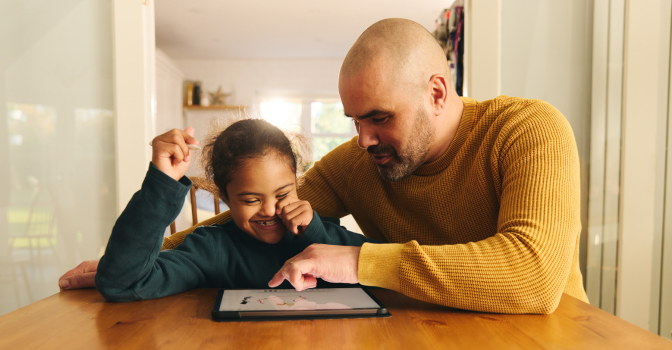Key points:
- Foundational supports are new, non-NDIS supports designed for people with disability, including those not eligible for the NDIS.
- Two types of supports will be available: general supports for all people with disability under 65, and targeted supports for those who are not on the NDIS.
- The Australian Government is seeking feedback on how foundational supports should be designed. Submissions close on 30 November 2024.
Consultation is underway to create more supports for people with disability outside of the NDIS. These new supports will be known as ‘foundational supports’.
One of the key findings from the NDIS Review handed down last year was the need for a connected system of supports for all people with disability, including those not on the NDIS.
The community consultation and design process is now in progress to shape what foundational supports will look like and how they’ll work. This is your chance to have a say. Submissions close on 30 November 2024.
What are foundational supports?
The NDIS Review identified that there aren’t enough disability-specific supports available in the community. As a result, people who are not eligible for the NDIS, or who need additional supports outside of it, can struggle to access what they need.
Foundational supports will provide additional assistance for people with disability outside of the NDIS. This new model aims to meet the needs of more people, improve inclusion and help ensure the long-term sustainability of the NDIS.
The Australian Government, together with states and territories, has committed to investing in foundational supports and working collaboratively to implement them.
Important things to know about foundational supports.
- Available to NDIS participants and people with disability under 65 who are not on the NDIS, as well as their families and carers.
- Separate from mainstream and community supports, which are available to everyone in the community.
- Expected to roll out in stages starting in 2025, with more information expected soon.
Two types of foundational supports.
The NDIS Review recommended two types of foundational supports:
General foundational supports: These would be available to assist all people with disability under 65. Examples include:
- Access to quality information and advice about disability and available supports.
- Capacity building for individuals and families, such as access to peer support groups, self-advocacy resources, and rights awareness.
- Community capacity building to deliver disability-inclusive and accessible services.
Targeted foundational supports: These would be for people under 65 with disability who are not eligible for the NDIS. Examples include:
- Home and community supports, such as help with shopping or cleaning, and aids or equipment for people with less intensive needs.
- Supports for adults with psychosocial disability to build capacity, independence and daily living skills.
- Early supports for families and children with emerging developmental concerns.
- Transition supports to help young people prepare for employment and independent living.
How would foundational supports work?
The goal is for all supports to work together as part of a connected system to better meet the needs of all people with disability. This includes:
- The NDIS for those who are eligible
- Mainstream and community supports
- Foundational supports.
Foundational supports will be designed to meet the diverse needs of individuals and communities, including First Nations, Culturally and Linguistically Diverse, LGBTQIA+SB, and people living in rural or remote areas.
The NDIS Review recommended that a new ‘Navigator’ role be established (think of an NDIS Support Coordinator, Plan Manager and Local Area Coordinator rolled into one). The plan is for Navigators to assist people to connect with and access these supports, and to make the best use of their NDIS funding. Navigators will be available to all people with disability, not just NDIS participants.
What would foundational supports look like?
The community consultation process includes an online Ideas Wall where suggestions have already been shared. Here are some key ideas from the initial discussions.
Information and advice:
- Fully invest in small, local, disability-led peer support organisations.
- Make consistent information available to all people with disability through national resources.
Individual and family capacity building:
- Establish a ‘one-stop shop’ for autism support.
- Ensure schools don’t require a diagnosis to make reasonable adjustments or apply for additional funding.
- Invest in non-clinical, community-level interventions that empower families, carers and support networks.
Community capacity building:
- Improve structures to support inclusive participation in mainstream sports.
- Offer toy libraries as a mainstream service for all families, with general foundational support for children with developmental concerns, delay or disability.
Get involved in the solution – have your say on foundational supports.
We encourage you to learn more about foundational supports and get involved in the consultation. The first round of consultation is on general supports.
There are several ways you get involved:
- Complete an online questionnaire.
- Add your thoughts to the online Ideas Wall. This is an easy way to contribute – add your ideas, like suggestions by others, or add comments to existing suggestions.
- Attend an online or in person event. There are online events on the 4th and 19th of November and in person events in each state and territory.
More information is available at the following links:
- Department of Social Services – Foundational Supports
- Introduction to Foundational Supports Webinar (YouTube)
- NDIS Review information on Foundational Supports
Submissions close on 30 November 2024.


